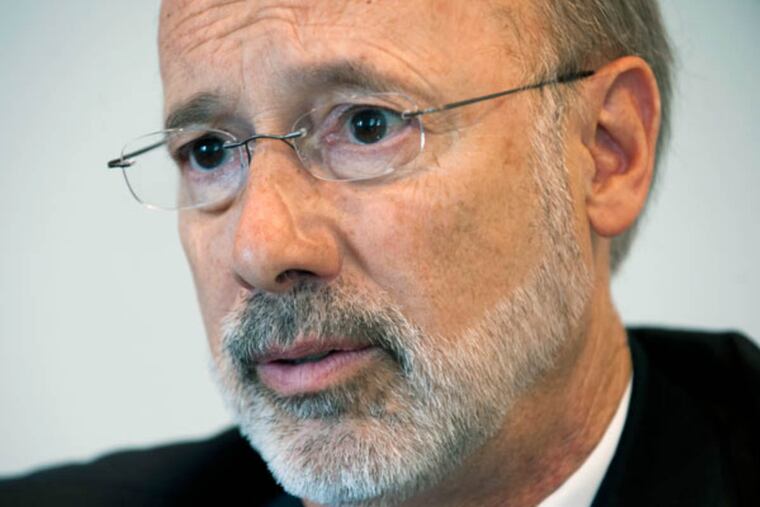Inquirer editorial: Schools suffer amid political standoff
It's beyond frustrating to watch Pennsylvania politicians satisfy their penchant for partisan mud fights while failing to resolve the funding and accountability issues keeping public schools in distress. Both Democrats and Republicans propose ideas that they know will get nowhere just so they can accuse the other side of being intransigent.

It's beyond frustrating to watch Pennsylvania politicians satisfy their penchant for partisan mud fights while failing to resolve the funding and accountability issues keeping public schools in distress. Both Democrats and Republicans propose ideas that they know will get nowhere just so they can accuse the other side of being intransigent.
Take legislation to allow school districts to lay off teachers based on budget constraints and without considering seniority, which Gov. Wolf vetoed Wednesday. Schools currently may lay off teachers only when enrollment falls, programs change, or schools are consolidated. Meanwhile, seniority rules can protect underperforming teachers while innovative instructors are let go.
Given those realities, the bill seemed well-intended. But comments by Republicans after Wolf's veto suggested they cared less about enacting it than portraying him as siding with teachers' unions.
Wolf often objects to legislation opposed by unions, a core constituency of the Democratic Party. But he said his problem with the layoff bill was that it would have undermined continuing efforts to develop a new system to measure student success and educator effectiveness that relies less on standardized test scores. Wolf also pointed out that if the legislature funded schools adequately, fewer layoffs would be needed.
Wolf's position sounds reasonable. But so does changing seniority rules so that good teachers with less experience aren't laid off. So why can't he and the Republicans reason with each other and find middle ground?
Intransigence also seems to be the culprit in the Philadelphia School District's inability to negotiate a new contract with the Philadelphia Federation of Teachers. Both sides sound reasonable when stating their positions, but amid their reasonableness, nothing happens.
Freshman city Councilman Derek Green recently introduced a resolution asking the district and teachers to return to the negotiating table to end their nearly four-year impasse. Green agrees with the PFT's contention that freezing teacher salaries during the stalemate has saved the district $100 million.
Green's mother was a teacher at Olney High School for 27 years, and he taught there part-time while in law school. But he shouldn't let his background keep him from seeing that any new contract must include significant concessions by teachers that further reduce the cash-strapped district's costs.
For example, most private-sector workers are required to make co-payments for doctor visits and other medical treatments. They wonder why government employees shouldn't have to make co-pays as well. In the same vein, if negotiations do resume, the city's School Reform Commission must acknowledge that there is a point at which cutting pay and benefits stunts Philadelphia's ability to compete with suburban systems for good educators.
It's clear that there's plenty of room for compromise, in Philadelphia and Harrisburg, if the people responsible for the education of children can get past their proclivity to point fingers at each other, figure out where they are close to agreement, spend the time necessary to work out their differences, and then move on to more difficult topics. Differences can be resolved with more effort and less politics.